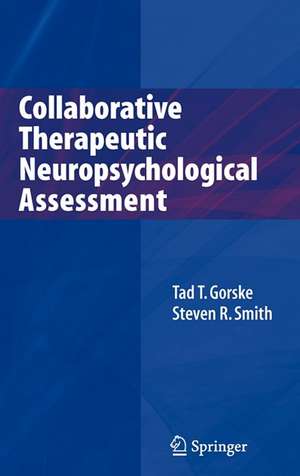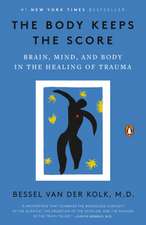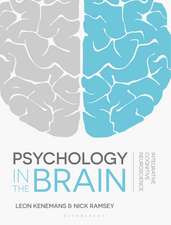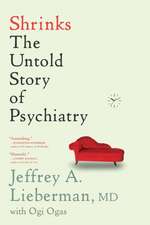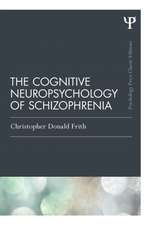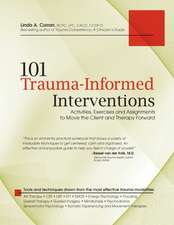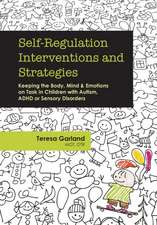Collaborative Therapeutic Neuropsychological Assessment
Autor Tad T. Gorske, Steven R. Smithen Limba Engleză Hardback – 20 oct 2008
In current practice, providing feedback to patients about the results of neuropsychological assessments has been considered an optional procedure by clinicians and thus received little attention in the literature. Yet there is evidence that when feedback is provided to patients the effects are overwhelmingly positive. Feedback provides a bridge between assessment and treatment by facilitating the development of applicable treatment plans. There is no agreed upon conceptual framework for providing feedback from neuropsychological assessment, although researchers have made recommendations. However, these recommendations have done little to affect clinical practice and training despite the fact that including patient-oriented feedback enhances the likelihood that neuropsychological assessment will remain a relevant and important component of patient care. The purpose of this proposed book is to first describe developments in methods of neuropsychological assessment feedback that involve active collaboration with patients in an open exchange of information and results. Second, we will present a comprehensive model for conducting neuropsychologicalassessment feedback. The authors of this book are expert clinical practitioners and academic researchers who are at the forefront of the development and implementation of Collaborative Therapeutic Neuropsychological Assessment methods. Table of contents follows.
| Toate formatele și edițiile | Preț | Express |
|---|---|---|
| Paperback (1) | 577.72 lei 6-8 săpt. | |
| Springer – 29 oct 2010 | 577.72 lei 6-8 săpt. | |
| Hardback (1) | 724.80 lei 6-8 săpt. | |
| Springer – 20 oct 2008 | 724.80 lei 6-8 săpt. |
Preț: 724.80 lei
Preț vechi: 883.91 lei
-18% Nou
Puncte Express: 1087
Preț estimativ în valută:
138.69€ • 144.80$ • 114.78£
138.69€ • 144.80$ • 114.78£
Carte tipărită la comandă
Livrare economică 04-18 aprilie
Preluare comenzi: 021 569.72.76
Specificații
ISBN-13: 9780387754253
ISBN-10: 0387754253
Pagini: 151
Ilustrații: XIV, 152 p. 8 illus.
Dimensiuni: 155 x 235 x 15 mm
Greutate: 0.36 kg
Ediția:2009
Editura: Springer
Colecția Springer
Locul publicării:New York, NY, United States
ISBN-10: 0387754253
Pagini: 151
Ilustrații: XIV, 152 p. 8 illus.
Dimensiuni: 155 x 235 x 15 mm
Greutate: 0.36 kg
Ediția:2009
Editura: Springer
Colecția Springer
Locul publicării:New York, NY, United States
Public țintă
Professional/practitionerCuprins
Challenges for Clinical Neuropsychology.- CTNA Conceptual Foundations: A Brief History of Psychological and Neuropsychological Assessment Feedback.- A Collaborative Therapeutic Neuropsychological Assessment Model.- The Initial Interview: Collaborative Information Gathering.- The CTNA Feedback Session.- Putting It All Together: Two CTNA Case Examples.- Applications of CTNA Methods.- Final Thoughts.
Notă biografică
Tad T. Gorske, Ph.D. is an assistant professor in the University of Pittsburgh School of Medicine, Department of Physical Medicine and Rehabilitation and is a licensed psychologist in Pittsburgh, Pennsylvania. His specialty areas include psychotherapy, psychological and neuropsychological testing with adults and older adults with mood, anxiety, and substance use disorders. Dr. Gorske completed his doctoral studies in Counseling Psychology at West Virginia University and postdoctoral training at Western Psychiatric Institute and Clinic in Clinical Neuropsychology and Addiction Medicine. From these experiences he developed Therapeutic Neuropsychological Assessment (TNA) with Dr. Christopher Ryan, an internationally renowned researcher in the field of neuropsychology and alcoholism. Dr. Gorske remains on faculty, studying the effects of TNA with clients. He has published in scholarly journals on topics related to addiction, neuropsychology, and counseling. Dr. Gorske is a member of the Motivational Interviewing Network of Trainers and is also active as Program and Education Board Chair for the Pennsylvania Psychological Association and the Board of Directors for the Greater Pittsburgh Psychological Association. He has presented his methods and results from a federally funded study in local and national conferences.
Steven R. Smith, Ph.D. is an assistant professor in the Department of Counseling, Clinical, and School Psychology at the University of California, Santa Barbara. Dr. Smith conducts research on the integration of neuropsychology and personality assessment. He is the director of the Psychology Assessment Center at UCSB and is co-editor of two recent volumes on assessment: The Clinical Assessment of Children and Adolescents: A Clinician’s Handbook (with Dr. Leonard Handler; LEA) and Personality Assessment: Evaluation, Application, and Integration (with Dr. Robert Archer; LEA). In 2005, he was presented the Beck Award by the Societyfor Personality Assessment for outstanding early career research. He completed his doctoral studies in clinical psychology at the University of Arkansas before internship and postdoctoral training at Massachusetts General Hospital and Harvard Medical School. After training, Dr. Smith remained on staff at MGH as a child psychotherapist and as Director of Consultation Neuropsychology before joining the faculty of UCSB in 2004.
Steven R. Smith, Ph.D. is an assistant professor in the Department of Counseling, Clinical, and School Psychology at the University of California, Santa Barbara. Dr. Smith conducts research on the integration of neuropsychology and personality assessment. He is the director of the Psychology Assessment Center at UCSB and is co-editor of two recent volumes on assessment: The Clinical Assessment of Children and Adolescents: A Clinician’s Handbook (with Dr. Leonard Handler; LEA) and Personality Assessment: Evaluation, Application, and Integration (with Dr. Robert Archer; LEA). In 2005, he was presented the Beck Award by the Societyfor Personality Assessment for outstanding early career research. He completed his doctoral studies in clinical psychology at the University of Arkansas before internship and postdoctoral training at Massachusetts General Hospital and Harvard Medical School. After training, Dr. Smith remained on staff at MGH as a child psychotherapist and as Director of Consultation Neuropsychology before joining the faculty of UCSB in 2004.
Textul de pe ultima copertă
Collaborative Therapeutic Neuropsychological Assessment
Edited by Tad T. Gorske, University of Pittsburgh, School of Medicine
Steven R. Smith, University of California at Santa Barbara
Perhaps the greatest challenge faced by neuropsychological assessment is its image as a bearer of bad news, i.e., the diagnosis of cognitive impairment. To meet this challenge and better address patient needs, practitioners need to fill the void that too often exists between diagnosis and treatment, starting with exchanging feedback about test results. The contributors to Collaborative Therapeutic Neuropsychological Assessment have developed methods that expand on traditional information-gathering means to build rapport with patients and let their voices be heard in decision-making: this client-centered approach has shown to lead to more personal interventions, better compliance, and stronger recovery.
In contrast with other books in the field, this reader-friendly volume provides detailed methods and procedures on client feedback as well as assessment, in addition to conceptual and practical basics:
Edited by Tad T. Gorske, University of Pittsburgh, School of Medicine
Steven R. Smith, University of California at Santa Barbara
Perhaps the greatest challenge faced by neuropsychological assessment is its image as a bearer of bad news, i.e., the diagnosis of cognitive impairment. To meet this challenge and better address patient needs, practitioners need to fill the void that too often exists between diagnosis and treatment, starting with exchanging feedback about test results. The contributors to Collaborative Therapeutic Neuropsychological Assessment have developed methods that expand on traditional information-gathering means to build rapport with patients and let their voices be heard in decision-making: this client-centered approach has shown to lead to more personal interventions, better compliance, and stronger recovery.
In contrast with other books in the field, this reader-friendly volume provides detailed methods and procedures on client feedback as well as assessment, in addition to conceptual and practical basics:
- The CTNA model and its underlying assumptions.
- The history and development of client-centered feedback in assessment, especially its roots in motivational interviewing.
- Empirical literature review, including the latest research on CTNA methods.
- Guidelines for conducting collaborative interviews in CTNA.
- Basic method for conducting collaborative feedback sessions in CTNA.
- Practical suggestions for using CTNA in clinical, rehabilitative, school, and other settings, and adapting the method to specialized populations such as children, the elderly, and minorities.
- Case studies illustrating salient concerns and techniques.
Caracteristici
Solely focuses on neuropsychological assessment Addresses the intricacies of providing feedback with assessment procedures sensitive to brain-behaviour relationship Fills a gap in the neuropsychological assessment literature by introducing methodologies for providing client-centred feedback Concise and clinician friendly Includes case examples and outlined, bulleted explanations of procedures Includes supplementary material: sn.pub/extras
